
Four tracks produced by file-exchange from 2010-2012 between sound artist Lee Patterson in Austin, Texas and Manchester, UK-based Vanessa Rossetto, impressive works on a large geographic and sound scale.
Out of Stock
Quantity in Basket: None
Log In to use our Wish List
Shipping Weight: 3.00 units
Sample The Album:
Lee Patterson
Vanessa Rossetto
Click an artist name above to see in-stock items for that artist.
Label: Another Timbre
Catalog ID: at58
Squidco Product Code: 17495
Format: CD
Condition: New
Released: 2013
Country: UK
Packaging: Cardstock gatefold foldover
Recorded between 2010 and 2012 by file exchange between Austin, TX and Manchester, UK.
Four tracks produced by file-exchange from 2010-2012 between sound artist Lee Patterson in Austin, Texas and Manchester, UK-based Vanessa Rossetto, impressive sound works on a large scale.
Another Timbre Interview with Vanessa Rossetto
Your early releases were all solos and that somehow seems very appropriate for the kind of music you make. How do you find collaborating with other musicians, and in particular with Lee, who you've never actually met in person?
Due to temperament and circumstance the vast majority of my collaborations have been with people I've not met in person. I hardly ever actually play with anyone here. But it's helpful to have someone to bounce things off of and who can, when needed, call bullshit on your compositional decisions. The distance can be good too as it lessens the likelihood of coming to blows! Working with Lee was nice because he is so much more restrained and subtle than I am and was able to keep some of my more excessive tendencies in check.
Yes, almost all of your music that I've heard has been on disc and has evidently been carefully constructed with lots of different overlapping layers rather than being a recording of a live improvisation or performance. Do you prefer working / composing in this way rather than playing live, or is it simply that there aren't many performance opportunities where you happen to be?
I do prefer composition to playing live, yes, but it's not so much that I don't play out as that when I do it's generally solo sets. Using Ableton has been able to bring me as close as possible live to replicating the sort of things I do on record. Exotic Exit was actually developed over the course of the past couple of years using recordings from live performances here that I'd then bring home and tinker with, discarding what doesn't work and keeping and modifying what does, then take them out into a live setting again, bring them home again etc.
So would you say that you are more a composer than an improviser, even if improvisation plays a significant part in your compositional process? Or does it feel odd to think of yourself as a composer? And would you like to play live more often in duo and trio situations if the opportunities arose, or are you really happier performing solo?It feels more odd to think of myself as an improviser! I have great respect for good improvisers (it's hard!) and I would like to play in more duo and trio situations if circumstances permitted, but at heart I'm definitely a composer. That is my greatest pleasure, sitting on my own in my room editing or making notes and diagrams, planning things.
In an interview with the 06:00a.m. website you define a composer as 'just an organiser of sounds', which seems a pretty good definition to me. But does this mean that you like to organise and tightly control every aspect of a piece you're composing, or is there room for the kind of happenstance / indeterminate / uncontrolled elements that are the staple of improvised music?
There's definitely room for those things and those elements can sometimes lead you in a direction you hadn't initially intended to go but that somehow works. I think, though, that even when you're employing these emergent themes and elements, you're still selecting and organizing and placing them in the final context. Even for something like the accidental capture of an interesting incident in a field recording, the composer has a choice to use or not use it and how to do so. I like to joke about how I hate spontaneity, and while that's obviously an overstatement, for me personally when I am making something everything is very carefully organized and placed very deliberately even if the original creation of an individual element arose indeterminately.
So given all that, it's perhaps strange that you became known initially through the improvised music world. Do you feel that you 'belong' there, or indeed to any particular 'scene'?
I have a tremendous amount of respect and affection for the people I know in the improvised music world and if they don't mind that I'm unabashedly a composer, I could be very content to be lumped in with such fine musicians. Would that be strictly accurate, though? Probably not, but the same would apply for the field recording world, the "new music" world, and others all of which I have things in common with and great affection for. There's a term I have seen used on the ihatemusic forums - "taomud," which stands for "the area of music under discussion," which might seem a bit self-referential but works for me on a few levels, a sort of "you know it when you hear it" kind of thing. If people flat out ask me what type of music I make, I'd be inclined to say electroacoustic composition. Is that a scene? I sort of hope it is!
So how did you start composing? And were you isolated at that point, or were there other musicians who you important to you?I started later than most, in my thirties. Of course, living in Austin everyone seems to be in a band so I knew a lot of people to assist with technical issues and to borrow gear and the like. Even if they weren't interested in working in the same areas of music as I was, a microphone's a microphone! My best friend is an amazing vocalist and was a big influence and a great help. Internet fora and their denizens, too, were very useful and I found lots of lasting friends and collaborators in those settings.
Did you have any formal musical training at any stage? And is that something that you'd find useful?I've not had any formal musical training; I went to art school and was trained as a painter, but I've learned a few things here and there over the years. It would definitely be useful and enjoyable to me, though, especially as a direction I'm interested in going involves writing music out for other people to play. I suspect any formal training I'd receive would probably have to be quite remedial in nature!
You could sit at the back and flick paper pellets at people. Do you have concrete plans for composing pieces for other people? And do you think that the process is likely to change the way that you create music yourself, or would it be a separate thing?
I would absolutely be flicking paper pellets and asking a lot of distracting questions, too! As far as specific plans, I'm interested in introducing in some scored segments (most likely for vocalists, but possibly other instruments as well) into some of my new concrète pieces. I think it could be interesting to have live voices and instruments in performances, too, so in that way it could change the way I create or present things. I've messed around making a few graphic scores also, but haven't yet summoned the cojones to ask anyone to play them. I've also almost completed and am trying to get into presentable condition an hour-ish long piece that's just string playing (with no field recordings or anything) that's taken a couple of years of work so far.
Artist Biographies
• Show Bio for Vanessa Rossetto "Vanessa Rossetto is an American composer. She uses primarily chamber instrumentation, field recordings, electronics and a wide array of objects. In 2008, she launched her own CD-R label, Music Appreciation. Through this imprint she has released four solo albums: Misafridal (2008), Imperial Brick (2008), Whoreson in the Wilderness (2008)and the FILE Festival-honored Dogs in English Porcelain (2009)." ^ Hide Bio for Vanessa Rossetto
4/2/2025
Have a better biography or biography source? Please Contact Us so that we can update this biography.
Track Listing:
1. Everything We Know About Anything Indicates That Nothing Is Ever Easy 13:30
2. There Is A Very Small Chance That You Are Not Making A Mistake 12:15
3. The Highs And Lows Of Cross-Atlantic Collaboration 10:59
4. An Indication Of Presence 9:54
Improvised Music
Electro-Acoustic
Organized Sound and Sample Based Music
Instant Rewards
Search for other titles on the label:
Another Timbre.


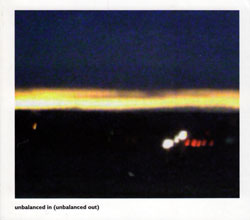
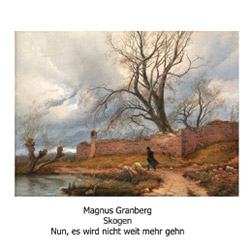









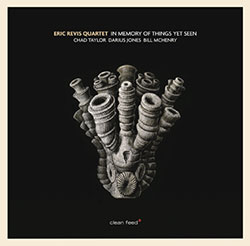
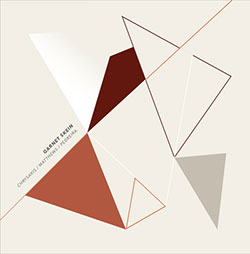

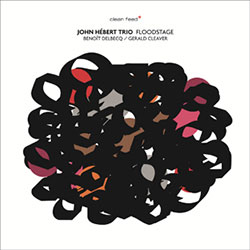



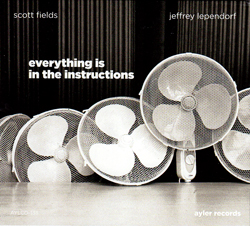

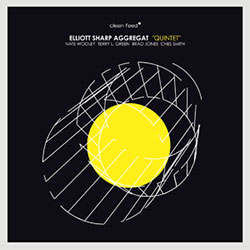



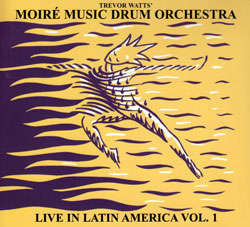


![Niblock, Phill / Anna Clementi / Thomas Stern: Zound Delta 2 [VINYL]](https://www.teuthida.com/productImages/misc4/34623.jpg)
![Yoko, Ono / The Great Learning Orchestra: Selected Recordings From Grapefruit [2 CDs]](https://www.teuthida.com/productImages/misc4/35841.jpg)

![Brotzmann, Peter / John Edwards / Steve Noble / Jason Adasiewicz: The Quartet [2 CDs]](https://www.teuthida.com/productImages/misc4/35975.jpg)
![Brotzmann, Peter / John Edwards / Steve Noble / Jason Adasiewicz: The Quartet [VINYL 2 LPs]](https://www.teuthida.com/productImages/misc4/35976.jpg)
![Thomas, Pat: The Solar Model of Ibn-Al Shatir [VINYL]](https://www.teuthida.com/productImages/misc4/36044.jpg)
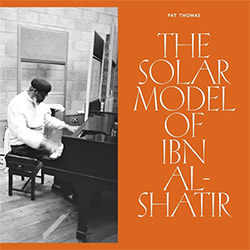



![Rodrigues, Ernesto / Nuno Torres / Guilherme Rodrigues: Whispers In The Moonlight - In Seven Movements [2CDs]](https://www.teuthida.com/productImages/misc4/35765.jpg)



![Cocks, Laura: FATHM [VINYL]](https://www.teuthida.com/productImages/misc4/36055.jpg)










![Ackerley / Prymek / Turner: All Hope With Sleeping Minds [CASSETTE]](https://www.teuthida.com/productImages/misc4/35950.jpg)
![Myers, David Lee : Tin Drop Tear [BOOK w/ DOWNLOAD]](https://www.teuthida.com/productImages/misc4/36030.jpg)




![Schindler, Udo / Sandy Ewen / Damon Smith: Munich Sound Studies Vols. 4, 5 & 6 [3 CDs]](https://www.teuthida.com/productImages/misc4/35966.jpg)
![Turbulence Orchestra & Sub-Units: Smear Out the Difficulties (Double Live) [2 CDs]](https://www.teuthida.com/productImages/misc4/36048.jpg)


![Perelman, Ivo / Tyshawn Sorey: Paralell Aesthetics [2 CDs]](https://www.teuthida.com/productImages/misc4/35871.jpg)


![Sjostrom, Harri: SoundScapes #4 Festival Berlin 2023 [3 CDs]](https://www.teuthida.com/productImages/misc4/35874.jpg)



![Glenn, Jordan: Flustered [CASSETTE]](https://www.teuthida.com/productImages/misc4/35948.jpg)










![Olencki, Weston : Pearls Ground Down To Powder [VINYL]](https://www.teuthida.com/productImages/misc4/35956.jpg)
![Myers, David Lee: Oculus [2CDs]](https://www.teuthida.com/productImages/misc4/35857.jpg)


![dustsceawung: dustsceawung [CASSETTE w/ Download]](https://www.teuthida.com/productImages/misc4/35753.jpg)




![Halls of the Machine: Atmospheres For Lovers And Sleepers [CASSETTE w/ DOWNLOAD]](https://www.teuthida.com/productImages/misc4/35806.jpg)



![AHC (Alexander Cooper): Lase [2 CDs]](https://www.teuthida.com/productImages/misc4/35754.jpg)



![Fagaschinski, Kai / Yan Jun : Graveyard Processions [VINYL w/ DOWNLOAD]](https://www.teuthida.com/productImages/misc4/35474.jpg)









![Zorn, John / JACK Quartet: The Complete String Quartets [2 CDs]](https://www.teuthida.com/productImages/misc4/35609.jpg)

![Lonsdale, Eden: Dawnings [2 CDs]](https://www.teuthida.com/productImages/misc4/35480.jpg)







![Sanna, Claudio: Compositori Sardi Contemporanei II [2 CDs]](https://www.teuthida.com/productImages/misc4/35317.jpg)







![Zurria, Manuel: Fame di Vento [3 CDs]](https://www.teuthida.com/productImages/misc4/35167.jpg)


![Electric Bird Noise / Derek Roddy: 8-10-22 [CD EP]](https://www.teuthida.com/productImages/misc4/35970.jpg)








![Elephant9 : Mythical River [VINYL]](https://www.teuthida.com/productImages/misc4/34624.jpg)



![Elephant9 with Terje Rypdal: Catching Fire [VINYL 2 LPs]](https://www.teuthida.com/productImages/misc4/35355.jpg)
![Deerlady (Obomsawin, Mali / Magdalena Abrego): Greatest Hits [VINYL]](https://www.teuthida.com/productImages/misc4/34876.jpg)







![Surplus 1980: Illusion of Consistency [CD]](https://www.teuthida.com/productImages/misc4/35069.jpg)
![Staiano, Moe: Away Towards the Light [VINYL + DOWNLOAD]](https://www.teuthida.com/productImages/misc4/35037.jpg)



![Caveira (Gomes / Sousa / Abras / Ferrandini): Ficar Vivo [VINYL]](https://www.teuthida.com/productImages/misc4/34643.jpg)
![Coley, Byron: Dating Tips for Touring Bands [VINYL]](https://www.teuthida.com/productImages/misc4/17906.jpg)

![Lost Kisses: My Life is Sad & Funny [DVD]](https://www.teuthida.com/productImages/misc4/lostKissesDVD.jpg)